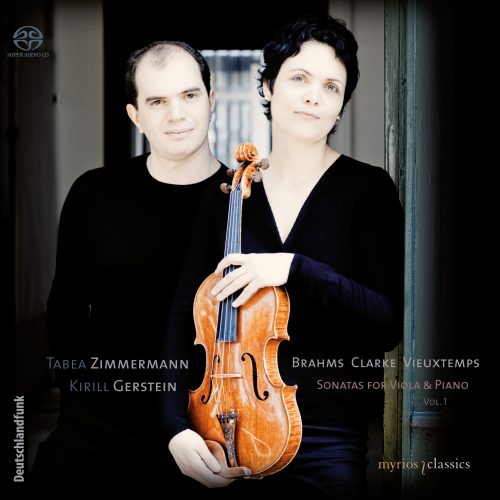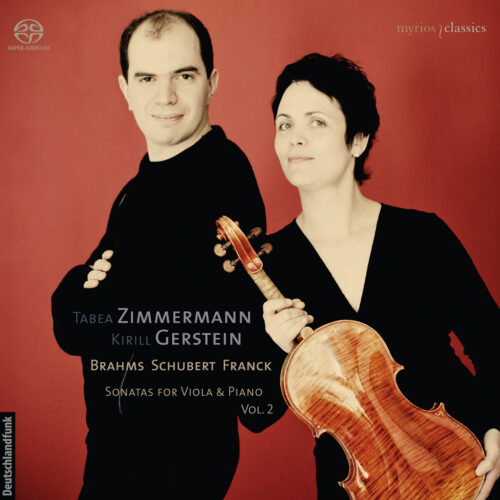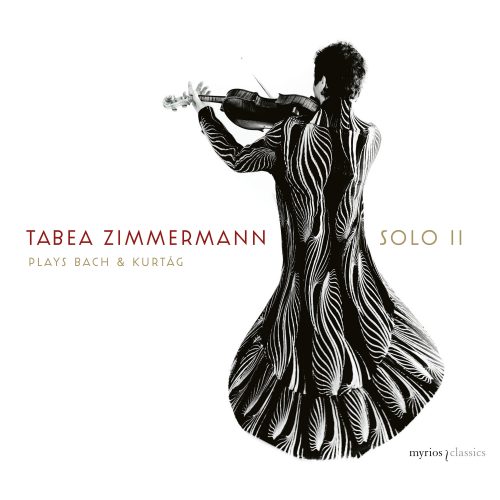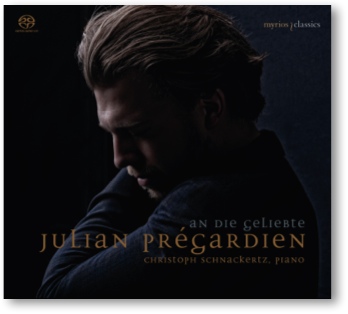“And when I had that one little whiff of success that I‘ve had in my life, with the Viola Sonata, the rumor went around, I hear, that I hadn‘t written the stuff myself, that somebody had done it for me. And I even got one or two little bits of press clippings saying that it was impossible, that I couldn‘t have written it myself. And the funniest of all was that I had a clipping once which said that I didn‘t exist, there wasn‘t any such person as Rebecca Clarke, that it was a pseudonym for Ernest Bloch!”
This was Rebecca Clarke speaking 1976 in an radio interview about her 1919 Sonata for Viola and Piano. Clarke had submitted it to the competition sponsored by Elizabeth Sprague Coolidge, as part of her annual chamber music festival held in Pittsfield, Massachusetts. The competition was organized with anonymous submissions, and 73 composers submitted entries for viola and piano, the instrumentation chosen for that year.
Tracklist
Please note that the below previews are loaded as 44.1 kHz / 16 bit.Total time: 01:05:40
Additional information
| Label | |
|---|---|
| SKU | MYR004 |
| Qualities | |
| Channels | 2ch Stereo, 5 Channel Surround Sound, 2ch Stereo & 5ch Surround |
| Artists | |
| Composers | |
| Genres | |
| Mastering Equipment | B&W |
| Recording Software | Merging |
| Recording Type & Bit Rate | DSD64 |
| Recording location | Deutschlandfunk Kammermusiksaal |
| Recording Engineer | Stephan Cahen |
| Producer | Stephan Cahen |
| Microphones | Sonodore |
| Mastering Engineer | Stephan Cahen |
| Original Recording Format | |
| Instruments | |
| Release Date | March 18, 2016 |
Press reviews
SACD.Net
“Let there be no doubt about it: Tabea Zimmermann is once again a miracle-maker. Her highly expressive playing is magnified by an ideal sense of dynamic and phrasing. Accompanied with brio by Kirill Gerstein, the violist offers us here, with this first volume, an unforgettable recording.”
All Music
The sometimes teased and frequently underestimated viola has rarely found its way into an album beautifully programmed and impeccably executed as this Myrios Classics disc featuring violist Tabea Zimmermann and pianist Kirill Gerstein.
The program opens with the 1919 Viola Sonata of Rebecca Clarke, a work that lay dormant for decades but has since become one of the most celebrated sonatas in the viola’s repertoire. Clarke’s writing combines sweeping lyricism with hints of impressionism to create an intimately moving, captivating composition.
Though known largely for his virtuoso violin compositions, Vieuxtemps’ Op. 36 Viola Sonata combines fewer elements of bravura with writing that truly highlights the viola’s ideal sound and emotive abilities.
Last on the program is Brahms’ well-known Second Viola Sonata (originally scored for clarinet or viola). In this, the first volume of what will hopefully be a lengthy series of albums devoted to the viola sonata repertoire, Zimmermann proves herself to be not only one of the most remarkable viola players in memory, but also a consummate, sensitive musician of the highest caliber. Her velvety, supple tone projects clearly without ever becoming nasal or forced; her dazzling technique and precise intonation rival even the best violinists.
Add to this a keen interpretive sense that guides listeners through this beautiful repertoire, and something truly special results. Gerstein’s equally warm, inviting playing is rich and authoritative, never covering the viola while at the same time not backing away from full forte playing. Myrios’ clear, robust, spacious DSD sound is the cherry on top of an unreservedly recommended album. 5-Star Rating on a 5-Star scale.”
SACD.Net
“Tabea Zimmermann’s playing is profound, sculptural, and woven with unpretentious zeal. The autumnal colors of her instrument (a 1980 Vatelot) surround rather than charm you, thereby revealing her musical discourse’s basic humanism, which makes this instrumental singing like suspended time, one that the music requires. Here is an admirable DSD recording from start to finish. Performance: 4 Stars, Stereo and Multichannel Sound Quality: 5 Stars”
Only logged in customers who have purchased this product may leave a review.






Reviews
There are no reviews yet.